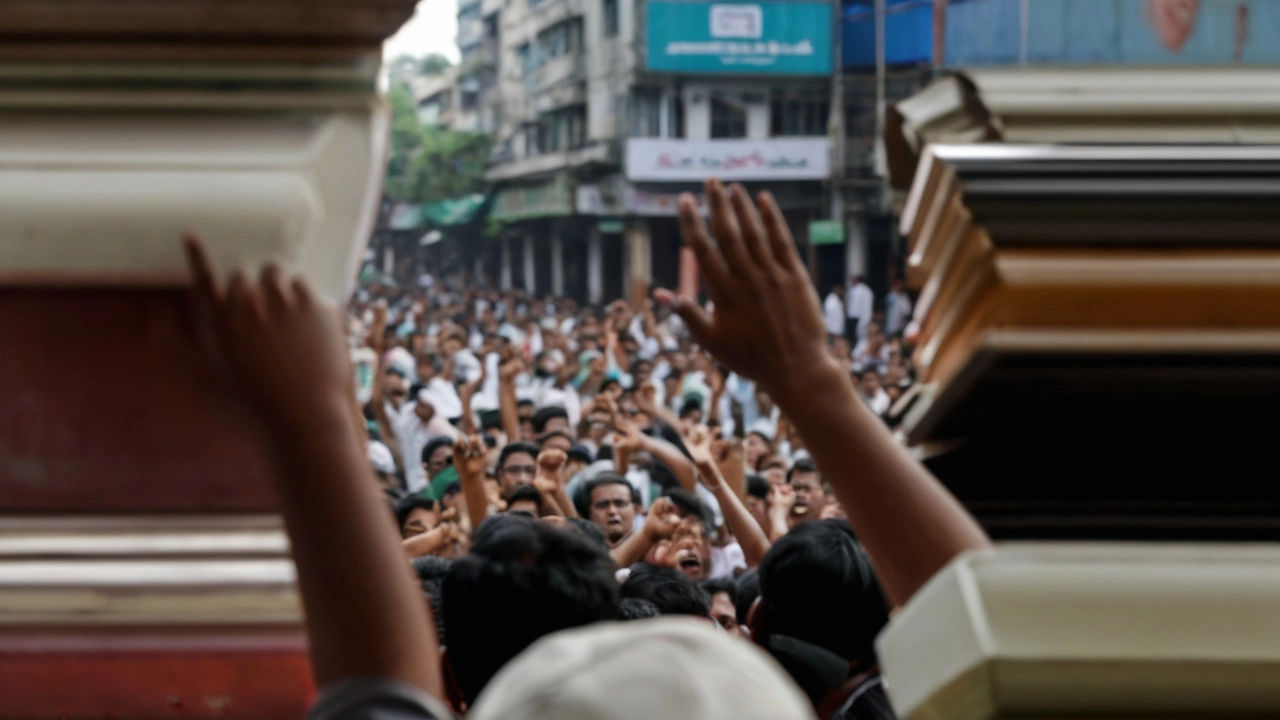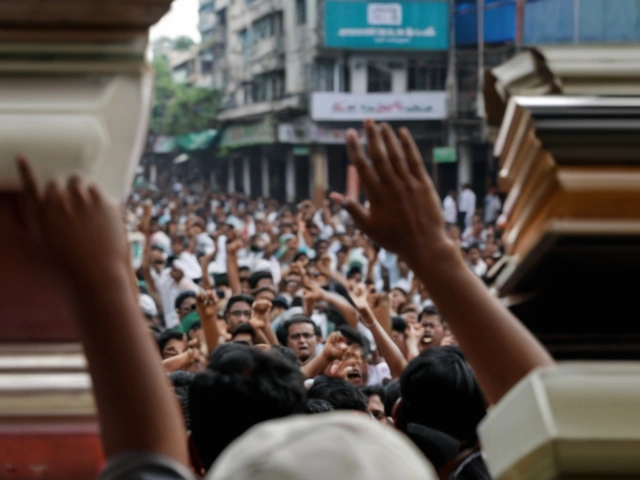Massive Protests Erupt in Bangladesh Over Economic Hardships and Corruption Allegations
In recent weeks, Bangladesh has been gripped by a series of intense protests demanding the resignation of Prime Minister Sheikh Hasina. These demonstrations reflect widespread discontent with the current government's handling of the economy and allegations of endemic corruption. The unrest began in mid-July and has shown no signs of slowing, as frustrated citizens take to the streets.
Economic Struggles Fuel Discontent
The primary catalysts for these protests are the economic hardships currently faced by the Bangladeshi population. Rising food prices and high inflation have left many struggling to make ends meet. The cost of basic commodities has surged, making everyday life increasingly difficult. This economic strain has undoubtedly heightened frustrations and led people to demand significant changes in the country's leadership.
Beyond rising food prices, the economic situation in Bangladesh has been marked by a notable decline in foreign currency reserves. This decline has further strained the nation's economy, contributing to inflation and a rise in fuel prices. As fuel costs soar, transportation and production expenses have increased, placing additional pressure on consumers.
Allegations of Corruption and Mismanagement
In addition to economic woes, the demonstrators have voiced strong criticism against the government for alleged corruption and mismanagement. Accusations of graft within the administration have damaged public trust. Many protesters believe that entrenched corruption is a significant barrier to economic improvement and fair governance.
The opposition parties have seized upon these allegations, demanding new elections and substantial reforms to address these issues. They argue that under Prime Minister Hasina's leadership, transparency and accountability have been sorely lacking. This demand for political accountability has become a unifying cry for the diverse groups of protesters amassing in cities across the country.
Violent Clashes and Government Response
The protests have not been without incident. Clashes with police have become a common occurrence, resulting in several injuries and arrests. The government's response has been to impose emergency laws and restrict public gatherings in an effort to curb the unrest. Such measures have only served to amplify the tensions between the state and its citizens. There have been reports of heavy-handed tactics used by law enforcement to disperse crowds, further fueling the outrage among demonstrators.
Despite these restrictions, the protesters remain defiant. Organized primarily through social media, they continue to rally and voice their demands. Their resilience suggests a deep-seated dissatisfaction with the current state of affairs and a strong desire for tangible change.
Ongoing Negotiations and International Concerns
As the situation remains tense, the government and opposition engage in intermittent talks to negotiate a resolution to the crisis. However, these discussions have yet to yield significant progress. The political deadlock prolongs the uncertainty, with both sides unlikely to make substantial concessions easily.
Meanwhile, the international community closely monitors the unfolding events in Bangladesh. Several nations have expressed concern over the potential for escalating violence and the broader implications of prolonged instability. Furthermore, some countries have indicated a willingness to offer economic support to stabilize the situation. This external assistance could be crucial in alleviating Bangladesh's economic challenges and restoring a sense of normalcy.
Bangladesh has a history of political unrest, and these recent events are reminiscent of past periods of turmoil. However, the current crisis is marked by a unique combination of economic pressure and widespread allegations of corruption. Addressing these multifaceted issues presents a formidable challenge for the government. Implementing effective reforms and rebuilding public trust will be essential steps in moving the nation forward.
In conclusion, Bangladesh stands at a critical juncture. The protests calling for Prime Minister Sheikh Hasina's resignation highlight deep-rooted economic and political grievances. As the government grapples with these challenges, the path to stability remains uncertain. The outcome of ongoing negotiations and the international community's role will undoubtedly shape the country's future trajectory.



Stay strong, Bangladesh.